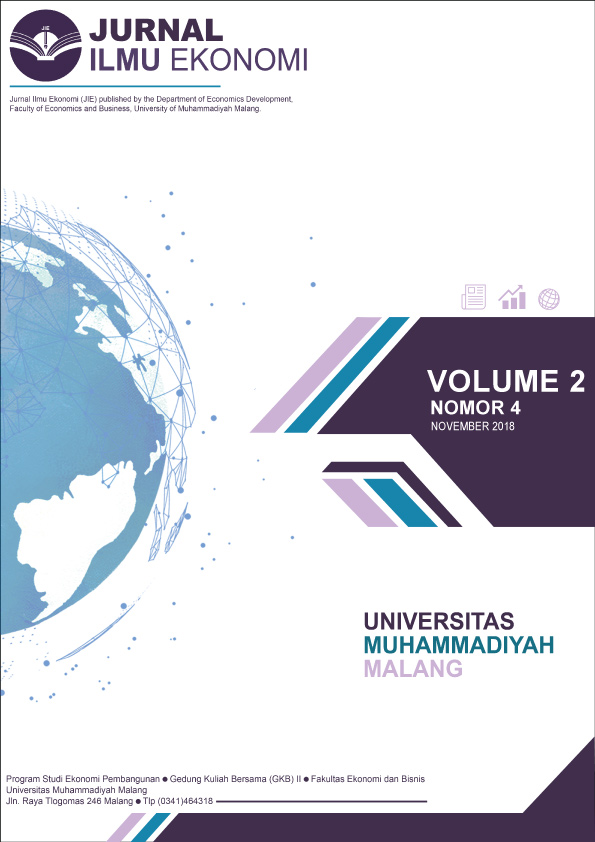ANALISIS PAJAK HOTEL DI KABUPATEN KOTAWARINGIN TIMUR
DOI:
https://doi.org/10.22219/jie.v2i4.6413Abstract
Research entitled "HOTEL TAX ANALYSIS IN EAST KOTAWARINGIN REGENCY".This study aims to find out the Hotel Tax Analysis In Kotawaringin Timur District. Method of data analysis tool used in this research is panel data analysis. The results of this study indicate that the number of hotels (X1) has a positive relationship to the hotel tax revenue. Elasticity value is 0.834700, meaning the increase in the number of hotels will increase the hotel tax revenue of 0.834700 and cateris paribus. Population (X2) has a positive relationship to the hotel tax revenue. Elasticity value is 0.809850, meaning the decrease in population will increase the hotel tax revenue of 0.809850 and cateris paribus. Place of Attraction (X3) has a positive relationship to the increase in hotel tax revenue is known by its elasticity of 0.527667 which will significantly affect the hotel tax revenue.
Keywords: Tax, Hotel, Places of Interest.
Downloads
Published
How to Cite
Issue
Section
License
Authors who publish with this journal agree to the following terms:
- For all articles published in the JIE (Jurnal Ilmu Ekonomi), copyright is retained by the authors. Authors give permission to the publisher to announce the work with conditions. When the manuscript is accepted for publication, the authors agree to the automatic transfer of non-exclusive publishing rights to the publisher.
- Authors retain copyright and grant the journal right of first publication with the work simultaneously licensed under a Creative Commons Attribution-NonCommercial-ShareAlike 4.0 International License that allows others to share the work with an acknowledgement of the work's authorship and initial publication in this journal.
- Authors are able to enter into separate, additional contractual arrangements for the non-exclusive distribution of the journal's published version of the work (e.g., post it to an institutional repository or publish it in a book), with an acknowledgement of its initial publication in this journal.
- Authors are permitted and encouraged to post their work online (e.g., in institutional repositories or on their website) prior to and during the submission process, as it can lead to productive exchanges, as well as earlier and greater citation of published work (See The Effect of Open Access).
This is an open access article and licensed under a Creative Commons Attribution-NonCommercial-ShareAlike 4.0 International License








